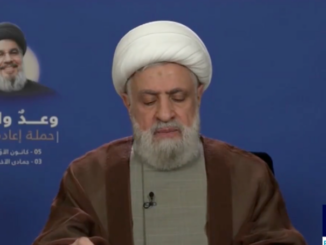
While Keir Starmer pledged to make Labour more inviting to its Jewish supporters again, ignoring British Jews who are not Zionists, he faced major issues over failures to combat anti-Black and anti-Muslim sentiments inside the Party.
The UK now has a new Labour government, headed by Prime Minister Keir Starmer. Despite winning in a historic landslide against their Tory rivals, most Brits were left uninspired, reflected in the low voter turnout as the Labour Party managed to win office due to the failure of their opposition. On the question of Palestine, it is unlikely that Starmer’s Britain will be much different from before.
Comments from Israeli officials indicating worry over the future of Israel’s strong ties with the United Kingdom under Labour rule, in addition to the new British Premier’s calls for a ceasefire during his first calls with Israeli PM Benjamin Netanyahu and Palestinian Authority President Mahmoud Abbas, have been held up as cause for belief in change. Under former UK PM, Rishi Sunak, Israel had received similarly favorable support to that of its more important allies in Washington.
On top of this, a report that surfaced in The Guardian indicated that the British government was unlikely to continue pursuing a proposed legal challenge against the International Criminal Court (ICC)’s pending arrest warrants for Benjamin Netanyahu and his defense minister, Yoav Gallant. Yet, when we read between the lines it is clear that there is no real evidence to support the idea that Prime Minister Keir Starmer will differ much from his Tory predecessor on the issue of Palestine.
Under the former Labour Leader, Jeremy Corbyn, the Party pursued a socialist domestic agenda and was staunchly supportive of Palestinian statehood. Corbyn’s pro-Palestinian position, having campaigned over the course of his adult and political life for the human rights of the Palestinian people, quickly became a concern amongst the Israeli leadership and the Israel Lobby in the United Kingdom.
Despite the fact that Keir Starmer had stood beside Jeremy Corbyn during the earlier stages of his leadership, describing him as a friend, he later switched and jumped onto the Israel Lobby’s claims of an anti-Semitism crisis inside the Labour Party.
While the Labour anti-Semitism witch-hunt eliminated countless members, staffers, and notably left-wing Jewish campaigners from the Party, primarily based upon criticism of Israeli policy, Labour was then left gutted of many of its grass-roots socialist elements by the time Jeremy Corbyn had stepped down from leadership after the 2019 general election defeat. The new Prime Minister then removed the whip from Corbyn and essentially pushed him out of the Labour Party, causing him to run as an independent in the election and crush his Labour opposition.
While Keir Starmer pledged to make Labour more inviting to its Jewish supporters again, ignoring British Jews who are not Zionists, he faced major issues over failures to combat anti-Black and anti-Muslim sentiments inside the Party. When we look at the Muslim vote in particular, despite Labour’s landslide victory, in high Muslim constituencies the Starmers Party lost seats or had their voter majority significantly smashed.
When Keir Starmer was asked about this, he refused to talk to the British Muslim community’s grievances directly, instead opting to brag about the strength of his mandate to be Prime Minister. The British Muslim community is statistically the most sympathetic to Palestine and voted on the issue of Gaza. The British Prime Minister’s record is abysmal, to say the least.
Back in October, after Israel had announced that it would be cutting fuel, water, food, and electricity from the civilian population of Gaza, Starmer stated during an interview on LBC radio that the Israeli government “has the right” to cut water and electricity. On top of this, he had initially told his Party to vote against a ceasefire, in a motion that was presented in the House of Commons, forcing him to make last-minute changes after some of his frontbenchers threatened to break ranks on the issue.
Keir Starmer also refused to call the Israeli assault on Gaza a genocide, after the International Court of Justice’s judges had unanimously ruled that Israel was plausibly committing genocide in the besieged coastal enclave. The British Prime Minister has also repeatedly supported what he calls Israel’s “right to defend itself”.
The International Centre of Justice for Palestinians (ICJP) even issued the UK Labour leader Keir Starmer a notice of intention to prosecute him for his role in aiding and abetting Israel’s perpetration of war crimes. If the Scotland Yard probe into evidence of Israeli war crimes finds evidence of such violations of international law, this could possibly lead to calls for the ICC to issue arrest warrants for those accused of aiding such war crimes, although the chances of this are slim.
This is How US Responded to Israel’s Use of Wounded Palestinian in Jenin as Human Shield – VIDEO
Now, after losing many seats or having the Labour Party’s voter base slashed in minority constituencies, in addition to both failing to win the popular vote and garnering fewer votes than Jeremy Corbyn did in the past two elections, Labour seeks to highlight Starmer’s initial conversations on the issue of Gaza.
By promoting the idea that Starmer is urging Netanyahu to agree to a ceasefire and is offering sympathy to the Palestinian Authority, it presents the idea that Keir Starmer is preferable to his opposition.
Despite the British Prime Minister’s rhetoric about the need for a so-called “two-state solution” and the birth of a Palestinian State, he quietly tore up the Labour Party’s position of recognizing the State of Palestine back in January.
While over 130 nations and counting have recognized Palestine, the UK remains one of the most staunchly anti-Palestinian nations as it does not even recognize the existence of Palestine.
(The Palestine Chronicle)

– Robert Inlakesh is a journalist, writer, and documentary filmmaker. He focuses on the Middle East, specializing in Palestine. He contributed this article to The Palestine Chronicle.







